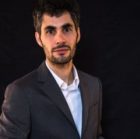
Workshop door Nicholas Cornia & Thomas Langlois
Wanneer 2 februari 2019 + 3 februari 2019Deelname € 50,00
Locatie Vierlinden 1, 9940 Evergem
"Verba volant, scripta manent". This Latin proverb, meaning "spoken words fly away, written words remain", captures perfectly the fortune and the struggle that we encounter when performing Early Music. We are lucky to have written sources but their interpretation requires knowledge and creativity.
In our workshop we invite you to explore the secular music of the XV and XVI century from its original printed and handwritten sources.
The program is as follows:
Performing sessions with Nicholas Cornia.
Solo and lute sessions with Thomas Langlois.
Lectures about historical performance practice.
Evening "jam-session" on Saturday
Final concert on Sunday.
The sessions are open for singers and early instrument players. The maximum number of participants is 15, so please register on time. Please let us know if you want to sleep at Leo and Elise's place.
Once the group will be formed I will send you the detailed program and modern and old scores of the pieces.
If you are interested please send us your contact details, voice or instrument type and a short description about your musical experiences: cornia.nichoals@gmail.com
Over Nicholas Cornia & Thomas Langlois
Nicholas Cornia, born in Rome in 1989, considers himself neither a researcher nor a musician, but rather a special combination of the two. After his studies in Mathematics and Physics at the University La Sapienza of Rome and two years as Phd student at the Informatics Department of the University of Amsterdam he decided to dedicate himself to music at the Conservatory of Ghent, where he studied Classical Singing and Music Theory. His interests lie in the theory, performance practice and transcription of music of the period between the 15th and the 18th century. He is especially active as artistic director of original musical projects based on interdisciplinary research and experience gained in various masterclasses, musical productions and summerschools.
Thomas Langlois was born on the 12 th of June 1999 in Ghent, Belgium. His passion for music originated at a young age, when he started playing the guitar and the lute at the music academy in Aalter. His first teachers for these instruments were Jona Kesteleyn (guitar) and Bart Roose (lute), but later on he followed several masterclasses to further develop his playing technique and musicality. He won several prices at national and international competitions.
Thomas was also trained in traditional flamenco music by Emre el Turco and Lisbeth Maes, acquiring the skill of accompanying a dancer and/or a singer. He regards his experience with flamenco music to be one of the biggest contributing factors to his current reputation as a soloist and as an accompanist.
He was admitted at the Royal Conservatory of Ghent for both the lute and the guitar. His interest in old music eventually persuaded him to fully dedicate himself to the lute. Thomas is currently trained by Wim Maeseele.
Thomas plays the Renaissance lute (7 or 10 course), Baroque lute and Theorbo; his repertoire ranging from Medieval music until the late Baroque music, but also occasionally performing contemporary music. He is often asked as an accompanist for voices, and as a soloist: recent highlights being his performance at the “Arte Amanti Festival” and a recital for the English Lute Society in London.